Posted by Jinnistan  1/26/2023 3:09 pm | #1 |
Seems like everyone has already started putting out their commemortive best-of lists to mark the 30th anniversary of the year. Probably would have been a more interesting and better haul to have done the '90-'92 lists, and there was still plenty of earlier stuff from these years that would have been on my playlist in '93 anyway. But I furgger, what the hay-el. Let me get in on the nostalgia-action, pull up my bad leg and tell you young-un sonsabitches what great music sounded like once upon a time. I know I could have done all of this in the "Yearly Best Of" thread, but I didn't feel like cracking open that coffin, and, besides, I'm not going to bother with any ranking here. Just freestyle some favorites.
Posted by Jinnistan  1/26/2023 3:18 pm | #2 |

Don't know how I could start the thread any other way than this brilliant platter of golden hiss and twitches. A revelation at the time, because no body sounded anything like this in 1993. It wasn't on the abrasive end of noise-rock, wasn't too lo-fi, unabashedly poppy, post-punk with organs instead of guitars (although at this point they still retained more guitar than they would later on). 30 years on, I still marvel at how a major label (Elektra) could have signed such wild and commerically unproven music as this or their label-fellows Ween (who unfortunately had no 1993 releases, although Pure Guava was on stable rotation for me the entire year). I just love this like candy.
Posted by Jinnistan  1/26/2023 3:26 pm | #3 |
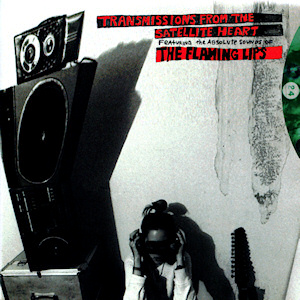
Wretched cankerous filth.
Posted by Jinnistan  1/26/2023 3:30 pm | #4 |

Sheer masturbatory melancholic might.
Posted by Jinnistan  1/26/2023 3:32 pm | #5 |

A-oooga.
Posted by Jinnistan  1/26/2023 3:36 pm | #6 |

Besides the new band having none of Jane's Addiction's musical chops, the only real downside is the irrational compulsion to slap that goddamn harmonica out of Perry Ferrell's mouth.
Last edited by Jinnistan (1/26/2023 3:41 pm)
Posted by Jinnistan  1/26/2023 3:40 pm | #7 |

The critics didn't like this one because critics are stooopid. Wiki couldn't even afford bigger artwork. Just for that, you get two cuts.
Posted by Jinnistan  1/26/2023 3:45 pm | #8 |

Before Primus lost their fizz.
Posted by Jinnistan  1/26/2023 3:49 pm | #9 |

Don't I wish I never met her.
Posted by Jinnistan  1/26/2023 3:51 pm | #10 |
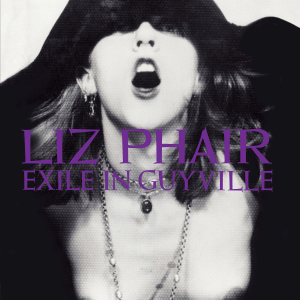
I bet Joe Rogan has never listened to this.
Posted by Jinnistan  1/26/2023 3:54 pm | #11 |

It was a sentimental year, after all.
Posted by Jinnistan  1/26/2023 4:07 pm | #12 |
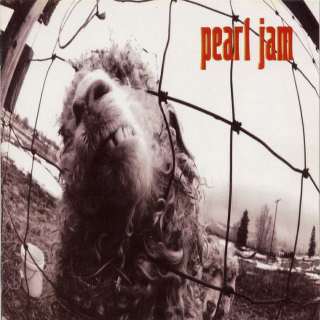

Oh, look at everybody laughing at the grunge. Well, yeah, grunge was starting to pretty much look like a joke at this point (and the punchline was apparently Stone Temple Pilots), but when these albums came out in the fall of '93, it gave some kind of promise that there were still some sparks in that rusty tank.
Posted by Jinnistan  1/26/2023 4:17 pm | #13 |

Speaking of grunge more generally, but maybe specifically just the audacity, looking back on it, at how much improbable music actually made it to major labels. Amazingly, The Melvins got picked up by Atlantic Records for a couple of years where they managed to only give the label one middle finger (Stag) before getting dropped. I mentioned Elektra as a shining example of a brave label scouting new talent. They were a-courting Daniel Johnston for awhile, but Johnston was scared that Elektra-mates Metallica were agents of Satan and would naturally come after him with horns blazing. Well, Johnston inevitably signed with Atlantic too. Guess Johnston didn't know about The Melvins.
Posted by Jinnistan  1/26/2023 4:21 pm | #14 |

Thankfully the Pumpkins managed to make this masterpiece shortly before becoming completely insufferable.
Posted by Jinnistan  1/26/2023 4:27 pm | #15 |

I don't know if I should include this simply because it was the band's only release in 1993, even though it's all '89-'91 EPs reissued in a new package. Well, yeah, I'm gonna do it anyway because Pavement was another band whose earlier stuff was pretty much in constant rotation at this time.
Posted by Jinnistan  1/26/2023 5:17 pm | #16 |


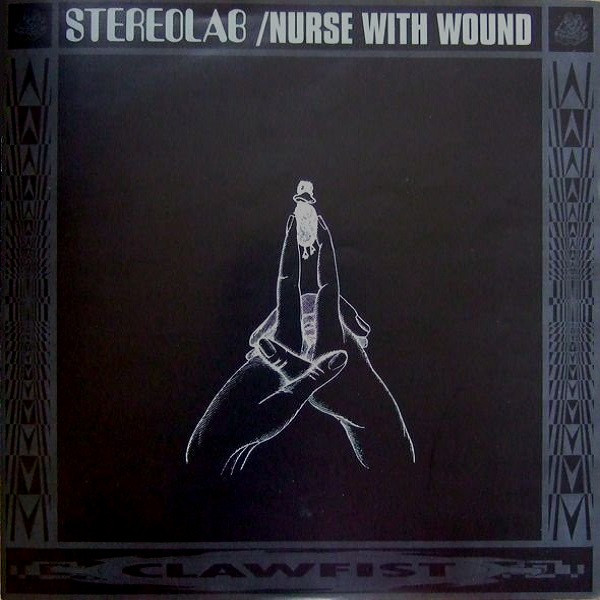


I'm not going to sit here and tell you that I was so cool as to actually have gotten my hands on any of these rare records at the time (some are less rare now due to various reissues), but most of them got passed around on things like cassettes dubbed (sometimes unwittingly) from those few lucky bastards who did manage to get a hold of them. Stereolab, in particular, was notorious for issuing quite limited discs from their own Duophonic label, selling souvenier discs exclusively at their concerts, putting out splits and flexis for various friends and contacts. It was all very esoteric, you see. They're still releasing compilations of all of this stuff, and I don't think they even know where all of it is. Bachelor Pad would become more popular as a CD later as the band's moogy image became more prominent. I was fortunate enough to have a friend with the 10" Crumb Duck however.
Spacemen 3 was a druggy trance-psych-rock band. Dreamweapon had been released in 1990, but fucking good luck with that. Most people I knew heard it for the first time with the 1993 reissue, which had the novelty on vinyl of having one 15 minute song that you could play by putting the needle at the end, in the center, and running on a groove that ran backwards over the entire side. They had already long broken up by this point, and diverged into two creative forces. "Spectrum" (Peter Kember) is definitely the more rare of the two, although he's probably more respected, and has done many hard-to-find collaborations with the likes of Kevin Shields, Thurston Moore, Silver Apples, Yo La Tengo, Stereolab (incestuous!) and more recently Panda Bear. The above EP includes a Daniel Johnston cover.
Spiritualized was the other splinter of Spacemen, being J. Spaceman himself, and saw more commerical success as the 90s went on. "Spaceman" (Jason Pierce) had a similar reputation with My Bloody Valentine's Kevin Shields for taking forever in the studio, mostly on endless mixing sessions. The Electric Mainline EP was supposed to be a time-filler for their next LP which would finally drop in 1995, Pure Phase. And even more rare, practically a bootleg but still managed to come to me on a cassette dub, was their live CD, Fucked Up Inside, which was technically only available through mail-order. It was side 2 of my cassette of the Lips' Transmission of the Satellite Heart.
Posted by Jinnistan  2/02/2023 7:26 pm | #17 |
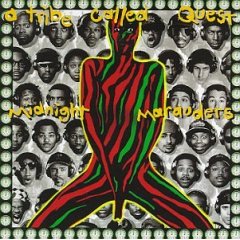
I haven't gotten to much hip hop yet, despite the fact the 1993 was still right in the epicenter of its 'golden age'. At this point, I really had no use for more commerical hip hop - Cypress Hill, Dr. Dre, Tupac (Thug Life) and what was seen as the growing 'gangsta rap' subgenre, based more on hardcore poses, criminal paraphernalia, macho fascism than musical quality. It was basically, to my ears, the black parallel to what was emerging in metal with groups like Pantera, hyperaggressive and threatening, sonically shrill and abrasive. I had very little interest in either. In terms of early 90s hip hop, I liked "conscious" rap (Public Enemy, Boogie Down Productions), what Bernie Mac called 'happy rap' (Digital Underground, Biz Markie) and the more recently emerged Native Tongues, mixing the conscious lyrics with less bombastic, jazz/soul sampled productions. 1993 saw excellent records from Tribe Called Quest (Midnight Marauders), Digable Planets (Reaching...), De La Soul (Bahloone Mindstate), Jungle Brothers (J Beez), The Roots (Organix), Guru (Jazzmatazz Vol. 1), KRS-One (Revenge of the Boom Bap), Digital Underground (The Body-Hat Syndrome), Ultramagnetic MCs (The Four Horsemen), Us3 (Hand on the Torch) and what's probably the only gangsta release worth its salt, Wu-Tang Clan (Enter the 36 Chambers), given RZA's more off-the-wall, visionary production. Among this type of mellow but intelligent rap, but those who didn't specifically have 1993 releases, were The Pharcyde, The Fu-schnikens, Nas, Arrested Development, Da Bush Babees, KMD, Common Sense, Del the Funky Homosapien, Brand Nubian (they did have a release but it was not good so we went back to One For All instead).
All in all, a very productive era of young black talent. Just this week, it was announced that Tribe Called Quest has become eligible for induction into the Rock and Roll Hall of Fame. I don't really care much about that. But this did inspire TheRoot to ask the unwanted and ill-conceived question "Why Do White People Love A Tribe Called Quest?" (Here's a better question...why do I keep reading TheRoot?) Well, I'm not entirely sure that *white people* love Tribe any more than any other of their favorite hip hop artists. Tribe certainly never sold as well Dre or Snoop or Pac or LL Cool J. They never had a hit as big as Tone Loc, Sir Mix A-Lot, 2 Live Crew or Cypress Hill. Q-Tip is not the household name in white homes as Ice-T or Ice Cube. Maybe the author should be clearer in defining exactly which white people he's referring to - "college-educated white people", or even more specifically "white college students". (And maybe they weren't "frightened" by Ice Cube so much as disgusted by his embrace of Farrakhan anti-semitism, a fact that was somehow ignored for 30 years until recently rearing its ugly head again.) While Tribe caught on with young, hip and aware white students, it's absurd to say they were ever embraced by "white people" writ large, and their sales record shows that.
The writer basically presents a contradictory frame for what it is about hip hop that attracts white listeners. "In the 80s, hip-hop replaced metal as the music white parents did not want their children listening to." I'm sure that there was a large number of white shitheads who had no better reason to listen to hip hop in the 80s than because it pissed off their parents. A lot of people don't properly appreciate the music when they only use it for non-musical reasons. And it's long been well-known that the reason why gangsta rap became the predominant style in the 90s was due to its popularity among white audiences precisely because it presented some taboo tourism through the ghetto that could be vicariously exciting from the safety of a suburban basement. And guess what? Maybe this is also exactly why a pseudo-gangsta group like Cypress Hill sold triple the number of copies than Tribe in 1993, and had the distinction of having the highest selling hip hop album up until that time. So it seems weird to me why TheRoot isn't interested in asking "Why Do White People Love Gangsta Rap?", a more pertinent and sociologically interesting question.
As I pointed out above, the symmetry between white kids' love of gangsta rap and their love of hardcore metal is not surprising. It's the reason why another huge hit from 1993, the Judgment Night soundtrack, was so successful, being a shrewd hybrid of these contemporary styles. The album is hit-and-miss. Helmet and Faith No More are more creative bands than Biohazard; Boo-Yaa Tribe is a lot more interesting than Onyx, and a few tracks sound like cash-in toss-off efforts. But as a marketing gimmick, it was a goldmine.
So we've established that this subset of suburban white kids love both gangsta rap and metal, because they're oppressively hyperviolent, hypermasculine and because they provoke repulsion in the people they hope to irritate. I can only speak for myself, but for me it was always about the music. 2 Live Crew is musically trash, but it sold more than Public Enemy and Tribe because it was provocative and taboo. Geto Boys is trash, somehow gets more respect today than the genius productions of Shock G, Prince Paul or DJ Premier.
"When Black artists are not 'cool' in a stereotypical way, it makes it a lot easier for their music to be accepted (by white people)". This is clearly bullshit based on everything presented above. The article just laid out the case for why hip hop had become so successful among white kids - because it's "anti-establishment", "raw and in-your-face". Tribe presented an antidote to all of that - "soulful, positive, jazzy, fun and uplifting". And most white audiences throughout the 90s would continue to purchase gangsta rap in exponential amounts to what this fertile but commercially smaller subgenre was able to sell. There is no metric available to show otherwise. Black audiences make up about 12-15% of the American consumer market. White people were buying these gangsta albums.
"Outside of other artists in the Native Tongues collective, Tribe was the only group that was making popular jazzy and soulful hip-hop for a widespread audience." This is a bit more conditional, considering how Tribe's most successful competitors in the genre are other Native Tongue members (De La Sul, Queen Latifah), or could be roundabout associated with someone from the collective (Digable Planets, The Roots, Common). But in the more general sense of hip hop, this is still a pretty small slice of the overall genre, and the overall sales among the white audience, in no way commercially threatening to far more lucrative and dominant enterprises like Def Jam, Bad Boy, Death Row or Roc-A-Fella. White people have spent more money on Kanye's shoes in the last decade (1.8 billion dollars) than all of the Native Tongue records combined. Let's ask that question?
Posted by Jinnistan  4/01/2023 1:58 pm | #18 |
Jinnistan wrote:
Thankfully the Pumpkins managed to make this masterpiece shortly before becoming completely insufferable.
Here's a crazy thing. I saw this clip of Howard Stern interviewing Billy Corgan this week (don't know why, maybe Corgan is promoting something), and it made me feel a lot less mean for constantly harping on the fact that the Pumpkins kinda fell off the cliff after Siamese Dream. It should be emphasized that there's a lot of bands both before and afterward who may have had some good stuff but quickly fell off the cliff. Plenty of folks who maybe have one decent LP if they're lucky. The problem with the Pumpkins is that they were better than that. Both of their first two LPs are gold, all of their early singles, "Starla", "Honey Spider", "Drown". Lull, Peel Sessions, Earphoria, Pisces Iscariot. There was nothing they touched in those early years that wasn't brilliant. So the dramatic descent of their falling off has always irked me even more for that. It's a baffling mystery of lost inspiration, a frightening portent of lost potential. What happened? Drugs? Cobain? Sheer ego run amok?
Because of the era, I always suspected that there was some typical music industry shenanigans. 1995 was the year when the so-called alternative boom imploded, and this has been blamed on a lot of things (drugs, Cobain, sheer ego), but most substantially there was a major shift in the music industry. Some of this shift was directly related to the above - Perry Ferrall has said that Cobain's death was the moment when the record labels decided to reign in the artists and 'get serious' - but mostly it was purely about money. MTV collapsed as a venue for new music. The "Modern Rock" radio format had transplanted 'alternative rock' stations, giving more airplay to non-independent voices like Bush, Green Day, Korn, Matchbox 20, Sugar Ray, etc. Lollapalooza was hijacked as a haven for the likes of Metallica. Pearl Jam lost their war with Ticketmaster. And a number of bands - I could mention the Chili Peppers chief among them - chose to lean heavily in on their commercial formulas and take the money. So for many years, I assumed this is exactly what happened to the Pumpkins as well, and apparently I was at least halfway right.
This clip has a rather stupendous moment. Stern is asking Corgan about all of the negativity during this muddled era, and I assumed they're talking about people like me. The kinds of fans of early Pumpkins who were sorely disappointed with their post-95 output, and just confused about what had happened. But the jumping off point here isn't Melon Collie. Stern uses as an example the hit song "Disarm" from Dream, again about as classic as Corgan has produced. Corgan then responds with a revelation:
Can I explain something to you that I think you're after? OK? I'm going to follow your logic. I'm the guy who wrote that song. I'm the guy who arranged those strings. I did that song when I was about 25 years old. And it was a big hit song. Not once after that song did anybody in my life - anybody - pull me in a room and say, '"Can you give me more of that". Not one time. Not one time did anyone sit me down and say, "Can you write me more of those songs?" They were like, "Give me more of the ones that sell sausages". You understand? "Bullet with Butterfly Wings" - ["despite all my rage, I'm still just a rat in a cage"] - was my saying, "You want me to be this rat in a cage? Here I am! Here's the dumb beat, here's the big rock chorus. And it was a big hit, and they were like, "Great! Give me more of that!" And to this day - what was that? 28 years ago? - To this day, the fans (god bless 'em) and the critics are still asking for more of the "rat in the cage" guy. They ain't asking for ["Disarm"] guy.
I am absolutely stunned. I am shocked that all of the fans like me were unable to get through to Corgan. I am appalled that his recollection was after making "Disarm", "you gotta read the review about how much you suck and how horrible you are, and you turn around to your management and they tell you, 'You're doing it all wrong, and you're getting bad press, you need to shut your fucking mouth', and all of these things." I can't say that I ever read any of these bad reviews of "Disarm" or Siamese Dream. Maybe Corgan's memory is a little jumbled. But if it is accurate to say that he was being actively discouraged by either his management or the people around him from continung in his Siamese mold, then that's quite an admission, and I must say goes some way of putting the mystery to bed as to why he was never able to attain that level of musical brilliance again.
Posted by crumbsroom  4/02/2023 10:51 am | #19 |
Jinnistan wrote:
At this point, I really had no use for more commerical hip hop - Cypress Hill, Dr. Dre, Tupac (Thug Life) and what was seen as the growing 'gangsta rap' subgenre, based more on hardcore poses, criminal paraphernalia, macho fascism than musical quality. It was basically, to my ears, the black parallel to what was emerging in metal with groups like Pantera, hyperaggressive and threatening, sonically shrill and abrasive.
I don't find anything musically or lyrically or substantitively lacking in gangsta rap. It certainly isn't my favorite subgenre of the form (I've actually never even listened to The Chronic before) but I find the MCing skill of Shakur, the lyricism of Cube, the sonic template Dre used in NWA, the brooding atmosphere of Cypress Hill all pretty much top notch. Sure, there is a lot of chest puffing going on here, which I would find obnoxious in a friend or some cunt at the end of a bar, but I think that macho bullshit has a lot to say about the environment it was born out of. As does the aggression, the nihilism, the despair. All elements that I find just as humane as anything that tries to think outside of the streets.
That said, I completely agree that the fanbase it attracts doesn't look good. It's always white kids. In university I would sit in rooms with bros who thought these ganster poses were either hilarious or badass, both attitudes which felt to me extremely demeaning towards the black experience they were depicting. This was a situation that, in its exagerrated form, became something to snicker down at, or make one see thuglife as the ideal condition for a black man. Years later, I mentioned this to some hip hop head friend of mine, that it seemed to me this music was allowing white eyeballs to see something like "How I Could Just Kill a Man" or "Straight Outta Compton" as a being sung by modern Step n Fetchits'. Let's just say I was vehemently disagreed with, and that me evoking minstrelsy sounded kinda racist. Which was annoying.
But, while I think that this kind of music basically being marketed by white people to white audiences has a lot of gross and exploitative aspect to it, and that the fanbase is certainly suspect, I find Ice-T's description of gangsta rap as 'reporting' pretty fair. This is music that has to exist, and I think it would be weird if it didn't. I think there is serious value in lyrics that document a communities experience through the eyes and vernacular and emotional state of those who live there. Sure, these sometimes devolve into poses, but we can also recognize those poses as armour. A very specific tactic one needs to survive on the street. An element that makes sense if it keeps reappearing in songs about gang life.
And maybe its also possible that sometimes a certain kind of message would never infiltrate the crowds it needs to unless it doesn't adopt a pose. During my brothers racist phase he listened to lots of gansta rap. And when he listened to it it was clear he was doing so in the broish way I outlined above. It wasn't because he had a very good outlook on the black community.
But over the years he shook his racist nonsense, he continued to listen to this kind of music. And I sometimes think its partially responsible for pulling him out from looking at blacks in the derogatory way he once did. I think after sometime, it dawned on him the rage and hurt and sense of helplessness that was burbling beneath the boasts and gun sound effects, and he recognized something of his own tragic existence in theirs. I think on that level of 'fuck the world' and 'I'll survive it anyways' he could see himself. And that is the kind of building block you need to stop seeing people for the color of their skin, and see the similarities that might matter most.
Posted by crumbsroom  4/02/2023 11:02 am | #20 |
Were obviously going to diverge on the 'when did Billy Corgan lose it' timeline. But it's impossible not to agree, as much as I think Mellon Collie is a really good record, there is something lacking in it which both Gish and Siamese Dream were made entirely out of. There was a majesty on those two records that stands above almost any other rock and roll I've ever heard. It sounds exactly as God like as I'm sure Corgan intended. But, with the exception of maybe Muzzle, maybe a handful of other songs, or little moments here and there, MC just never gets to those heights. It's the sound of a really talented guy indulging himself to the point of almost complete parody, stretching himself thin to the point his weaknesses start to peak through, cranking out tunes so fast they don't feel completely developed. But for me its a great trip regardless of all its faults.
But it did start to get bad after that. Really really bad. I don't actively dislike a lot of music, but I really really hate anything I've heard by Corgan since Adore (which I can only barely tolerate).
So it is a huge question where all that obvious talent went. He was operating on a higher level than virtually anyone in the alternative scene at the time, and he ended up just devolving into the most horrid and obvious of musical and emotional and artistic cliches. It's a real bummer.
